Rimac Campus Progressing Excellently, Interactive 3D Model Created
September the 14th, 2022 - Croatian entrepreneur Mate Rimac is by far Croatia's most successful entrepreneurial story of the modern day. Referred to as Europe's Elon Musk, Rimac has done what nobody else has - created some of the world's most incredible hypercars in a country that doesn't even have an automotive industry to speak of. His impressive plan, the Rimac Campus, is also progressing very well.
The upcoming Rimac Campus, which will not only shine the spotlight on Croatia even more strongly in regard to entrepreneurship, investment and of course - the automotive industry, will also provide enviable employment opportunities to many who would likely have headed off abroad in search of the jobs they were educated for.
As Poslovni Dnevnik writes, the absolutely stunning Rimac Nevera hypercar, as well as key components for future Rimac and Bugatti models, will be produced at the Rimac Campus in Kerestinac, which is currently under construction. The much anticipated Rumac Campus spans a constructed area of 100,000 square metres, and a total area of 200,000 square metres. It is worth an enormous 200 million euros in total.
Mate Rimac is no stranger to social media and frequently publishes posts, videos and photos about what he is currently working on, engaging well with an always interested audience. He recently took to his personal Facebook profile on which he published an impressive interactive 3D model of the current state of the construction site of the future Rimac Campus, which clearly shows that the works are progressing quite well indeed.
The completion of the first phase of construction of the Rimac Campus is planned for 2023, and in the long term it should become a workplace for around 2,500 employees.
The Livno-born entrepreneur has taken the world of cars by storm from a country that hasn't provided the best footing for going it alone, and his dogged determination is something Nikola Tesla, his fellow countryman, would be very proud of.
For more, make sure to check out our dedicated business and Made in Croatia sections.
Croatian Banks Send Out Important Info Regarding Euro Introduction
September the 14th, 2022 - Croatian banks have sent out some important information to their customers and clients regarding Croatia's rapidly approaching accession to the Eurozone, which is set to take place on the very first day of 2023.
As Poslovni Dnevnik writes, PBZ sent its clients and customers a notice related to Croatia's upcoming introduction of the euro, in which they specify the essential elements for conversion that will be applied in the conversion of the Croatian kuna to the new single currency of the Eurozone.
"On the day of the introduction of the euro in Croatia, the bank will automatically and without charge carry out the conversion of funds held in Croatian kuna in bank accounts, deposits, loans and other financial statements of value at a fixed conversion rate of one euro = 7.53450 kuna,'' the bank stated.
''The conversion will be carried out by applying the rules for conversion and rounding in accordance with the Law on the Introduction of the Euro as the Official Currency in the Republic of Croatia. In addition to that, according to the principle of continuity of contracts and other legal instruments, the introduction of the euro will not affect the validity of existing contracts on loans, deposits and savings in kuna, etc., meaning that no new contracts need to be concluded. The goal is to carry out the process of introducing the euro and the activities resulting from it in such a way as to ensure the simplest possible treatment for everyone,'' it added.
The period of the obligation to display prices twice (in both Croatian kuna and euros) to consumers began on September the 5th, 2022 and ends twelve months after the introduction of the euro in Croatia.
Of the other Croatian banks which have sent out information on Croatian Eurozone accession to their clients, Zagrebacka banka made similar statements: "On the day of the introduction of the euro as the official currency of Croatia, monetary values expressed in kuna on custodial and brokerage accounts will be converted into euros by applying the rules for conversion and rounding defined by the Law."
Erste Bank also informed its customers about the currency change, according to a report from N1.
For more, make sure to check out our dedicated lifestyle section.
Croatian Returnee Reflections: Maria Pokrivka, from Graz to Zagreb
September 14, 2022 - Whisper it quietly, but more and more people are relocating to Croatia from the diaspora. In a new TCN series, we meet them to find out how they are faring and what advice they have for others thinking of making the switch. Next up is Maria Pokrivka, who moved from Graz to Zagreb.
My parents, both from Croatia (mum: Zagorje, dad: Slavonija), met in Graz-Austria and decided to stay there. I was born and raised in Graz. My connection to Croatia was huge, spent all my Holidays there, 1st language, Croatian, and was part of the Croatian community. I studied economics in Graz and did 1 year Erasmus in Zagreb. At the moment, I am working for an elevator company in Zagreb in Human Resources. That is my first job since I moved to Croatia.
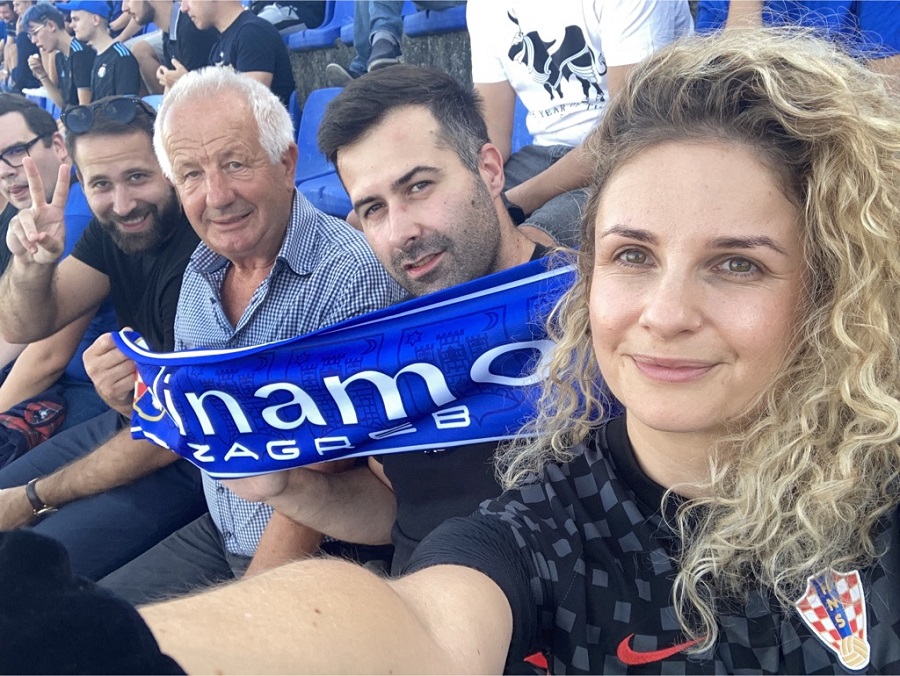
1. You made the switch to Croatia. Tell us a little about the decision process and how long it took for you to get on the plane.
After spending 1 year in Zagreb for Erasmus, I decided after I finish my studies in Graz, I will move there. Since then, all the smallest decisions I had to make were consciously chosen to help me come to Zagreb. As a “foreigner” in Austria, I just wanted to find my home, and that is what Zagreb gave me. About 5 years after Erasmus, I finally moved to Zagreb, and since then have never regretted it!
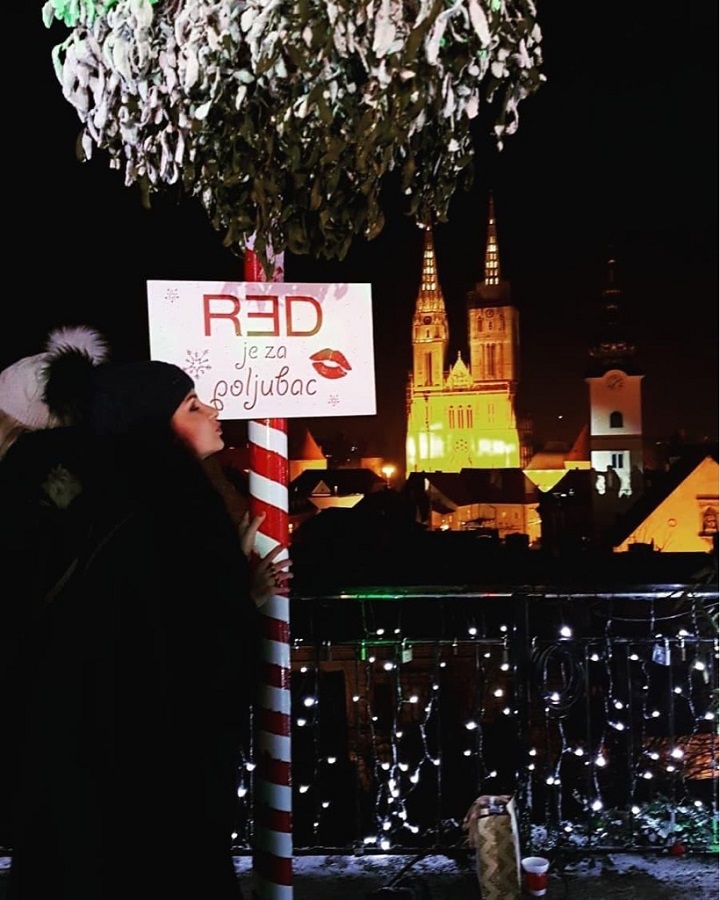
2. What did your family and community back home think of your decision at the time?
My family was definitely not happy about my decision and didn’t understand it. They thought Austria would give me a better life. My friends, on the other hand, felt I was doing the right thing, as they knew how long I desired to live there.
3. Where did you get your information about the realities of Croatia prior to coming?
Mostly from locals, as I had a lot of friends in Zagreb. All of them were really surprised about my decision, but again they confirmed to me that you could live very well in Zagreb.
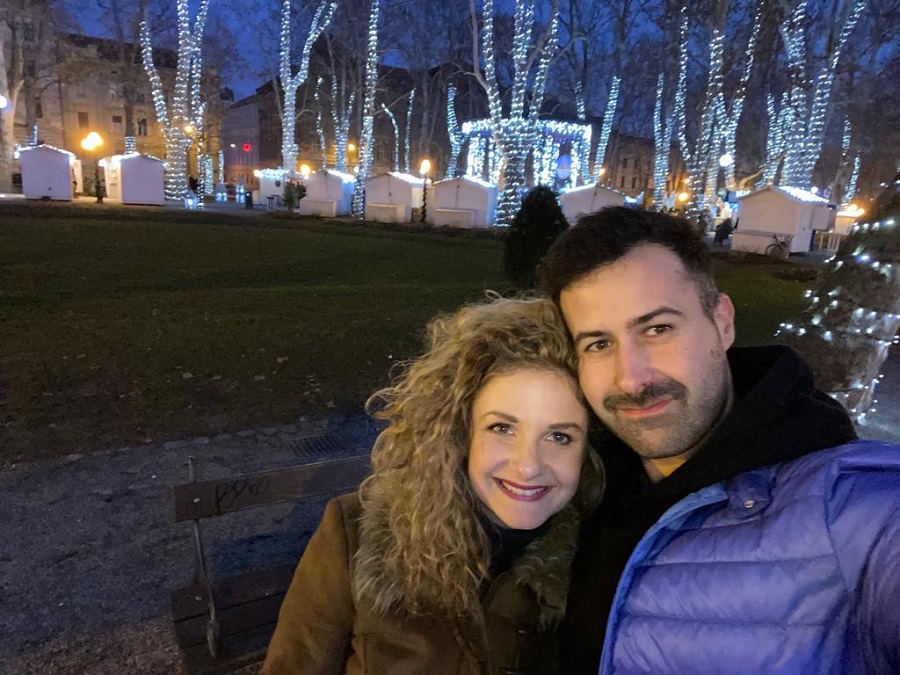
4. What were you most nervous about making the switch? What was your biggest fear, and what was the reality of what you found?
My biggest fear was at the beginning, If I fail or it doesn’t turn out the way I thought. I just didn’t want to fail and move back. Well, it turned out great. I had luck working in a good environment, with good friends around me. The reality was better than the dream.
5. Think back to the time before you arrived. What were your perceptions about Croatia, and how were they different from the reality you encountered?
Not much has changed. My perception was if you find a solid job and have a solid income, you can have a very beautiful life. I honestly can’t think of anything that surprised me.
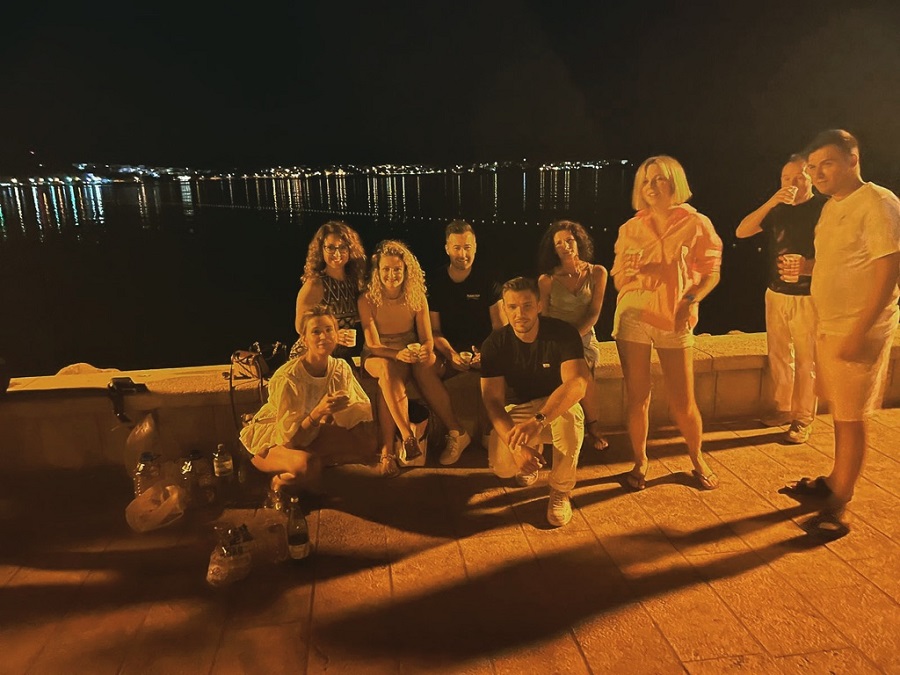
6. You are still here, so obviously, the pros outweigh the cons. Tell us about some of the things that you love about being in Croatia, as well as some of the things you don't like.
People. I love the warm, Direct and spontaneous mentality. Life is easy. The beauty of the country, and how close everything is. Literally every weekend during summer I spend it on the coast. Children are still children, they can be with their friends in the park the whole day, and you as a parent feel it s safe on the street. Buying your breakfast in the pekara (bakery) and enjoying it at a coffee house. I know there are also many cons, one of the cons that come to my mind are hospitals that are in a very bad state or a lot of corruption that affects the whole country.
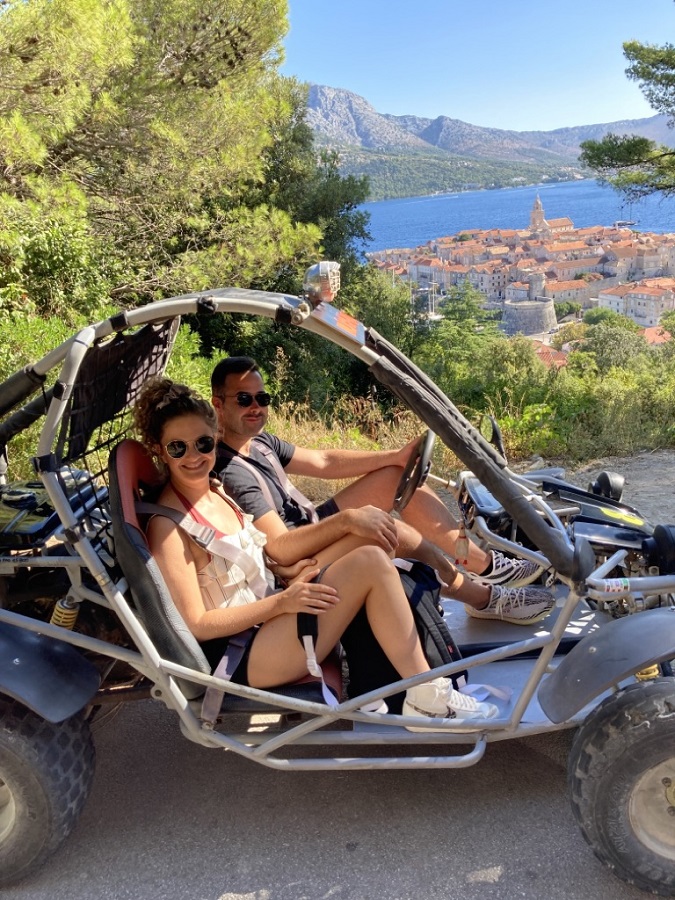
7. What advice do you have for others thinking about making a move from the diaspora?
Make sure that you learn the language abroad, knowing foreign languages in Croatia opens many doors. Buy your own apartment, don’t rent one.
8. How do you think Croatia can better assist those who are looking to return to the Homeland?
That is a hard one. But I think trying to connect them better in their hometown would make a big benefit. Whenever I'm telling someone in Croatia my story, they are very surprised and convinced that I am literally the only person who moved back, Because in the media, you only hear how people are leaving Croatia, but not that they are moving back. If the diaspora is better connected, they could help each other better.
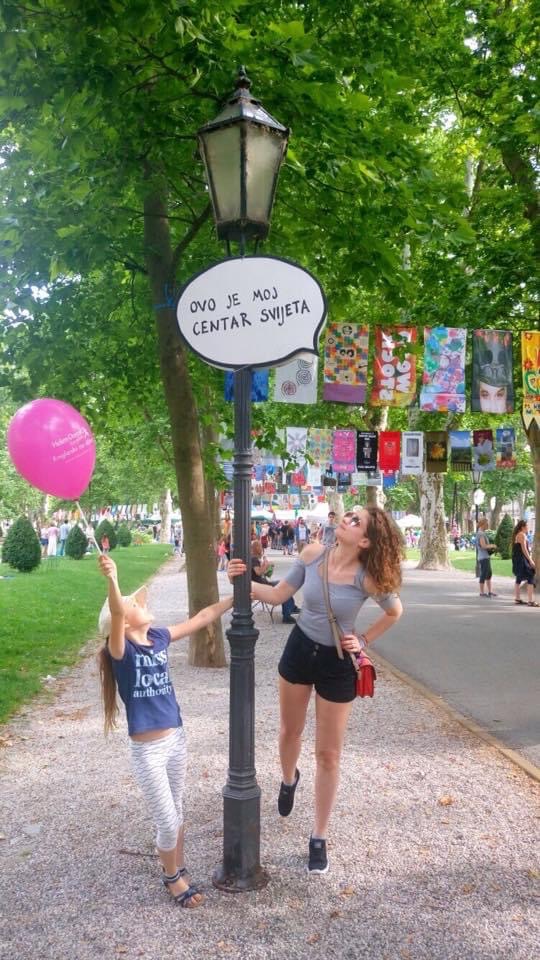
****
Thanks, Maria!
You can follow more stories in the Croatian Returnee Reflections series in our dedicated TCN section.
Would you like your returnee story - positive or negative - to be featured in this series? Contact This email address is being protected from spambots. You need JavaScript enabled to view it. Subject Returnee.
****
What is it like to live in Croatia? An expat for 20 years, you can follow my series, 20 Ways Croatia Changed Me in 20 Years, starting at the beginning - Business and Dalmatia.
Follow Paul Bradbury on LinkedIn.
Croatia, a Survival Kit for Foreigners will be out by Christmas. If you would like to reserve a copy, email This email address is being protected from spambots. You need JavaScript enabled to view it. Subject 20 Years Book
Meet Vukovar 365, Full of Life - Mess, Underground Music Collective
September 13, 2022 – There are doctors, and lawyers, and business executives… and then there are florists, and artists, and Mess. Vukovar’s underground scene might be a bit like a certain city that suffered a nuclear catastrophe in 1986, but something is cooking. If you try hard enough, you can learn about it today from the creative minds behind Mess. Mess is what they are, Mess is what our interview was. Mess is all you need to know, it’s all we can say, it’s nothing, but it’s enough. This colourful group of young individuals somehow got together and decided to start producing hip hop. In Vukovar. 365.
What is Mess all about?
Mess is a music collective and Telegram group with a focus on rap, but we dabble in various genres.
Our members are Kien, Kari Gasparov, Sky Kole, Sveti Melodije, Ivica Šetač, Glone, and 2 much-respected telegram bots (all our birth names).
How did that happen, what inspired the movement?
We met on a night out by chance, talked, and found out that we share a love for hip hop and music in general.
Not long after that, we agreed to meet in the spaces of Youth Peace Group Danube where they had a music studio, and those gatherings became Mess.
Not, that’s what it looked like on the surface, but the reality is that Trun was behind it all. It connected us metaphysically to channel his agenda and enter the collective consciousness of this city, possibly even beyond.
We only found out after 3 years when he appeared at an after-party to tell his truth.
Can you tell us more about Trun?
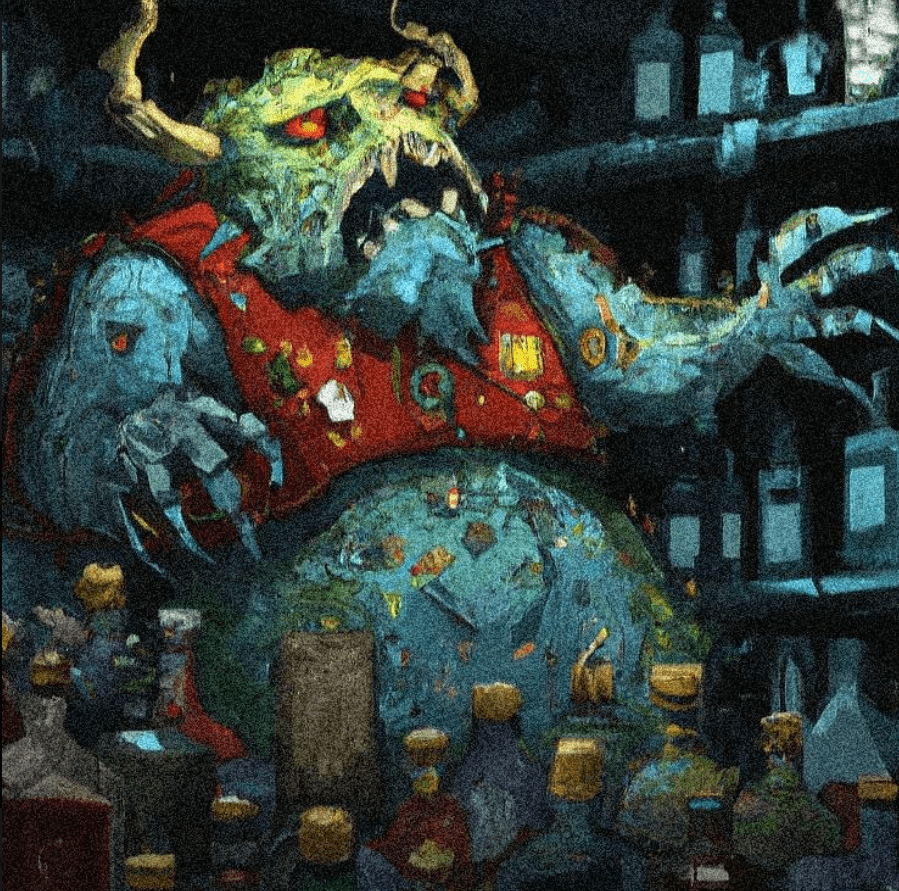
Dall-e2 and Pegla (Mess)
Trun? Trun is a powerful entity that lives mainly in the 6th dimension but possesses the ability to appear in the third dimension as well, though exclusively in after-parties. We were able to learn about his form with the help of another one of our friends, Dall-e. Dall-e is an AI image generator that creates art based on briefs where you can indicate the subject, the style, and more. We had a chance to Beta test the program and are thankful for the gift of Trun.
What message are you sending through this project?
We don't send messages, we send messages through things.
The overarching message would be that we live in a society.
What is your main product?
Our main product is music, we are not really planning anything else, except Mess merch.
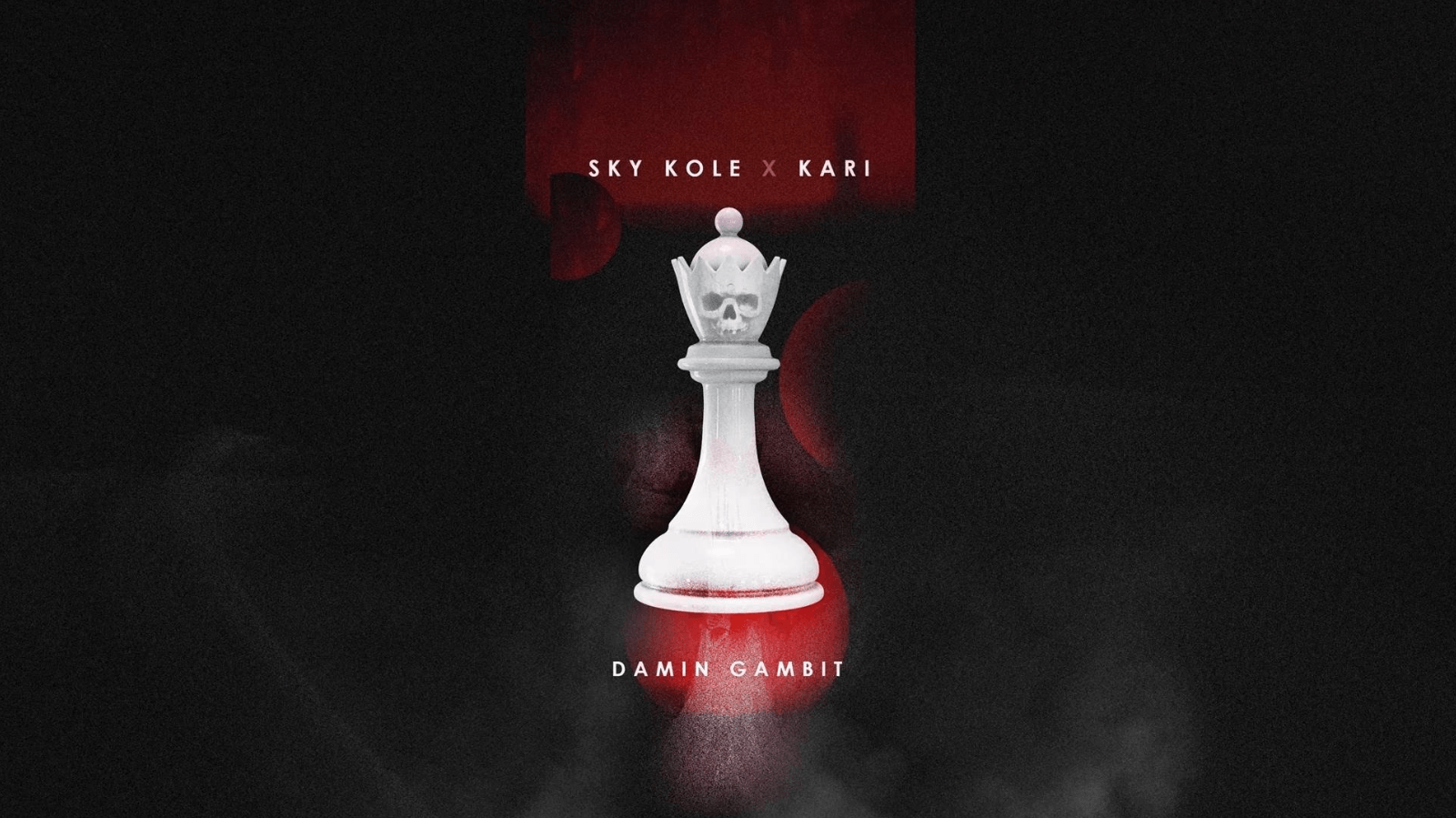
What is the underground scene like in Vukovar?
The scene in Vukovar is something like Chernobyl, with only mutants and strong genes remaining, we might be something in between.
On a serious note, though there has been some interest, we believe that it is not strong enough to call it a scene.
Attempts to create a vibrant alternative scene in the city have so far been unsuccessful and miserable.
Are you connected with anyone else, how does that work?
We are not really connected with anyone, nor do we have any plans to do so, that can only happen if we vibe.
How is your music perceived in Vukovar?
From time to time people say “good stuff”, that’s all we know.
Some of you have left Vukovar, how is it living abroad?
“I know that over there is better, but over there is not mine”. - Coby.
What about home then, what would you change?
The city is as it is, we can't change anything there, but if we could, we would like to see a livelier alt scene, we’d like it if everyone had more money and there were more people.
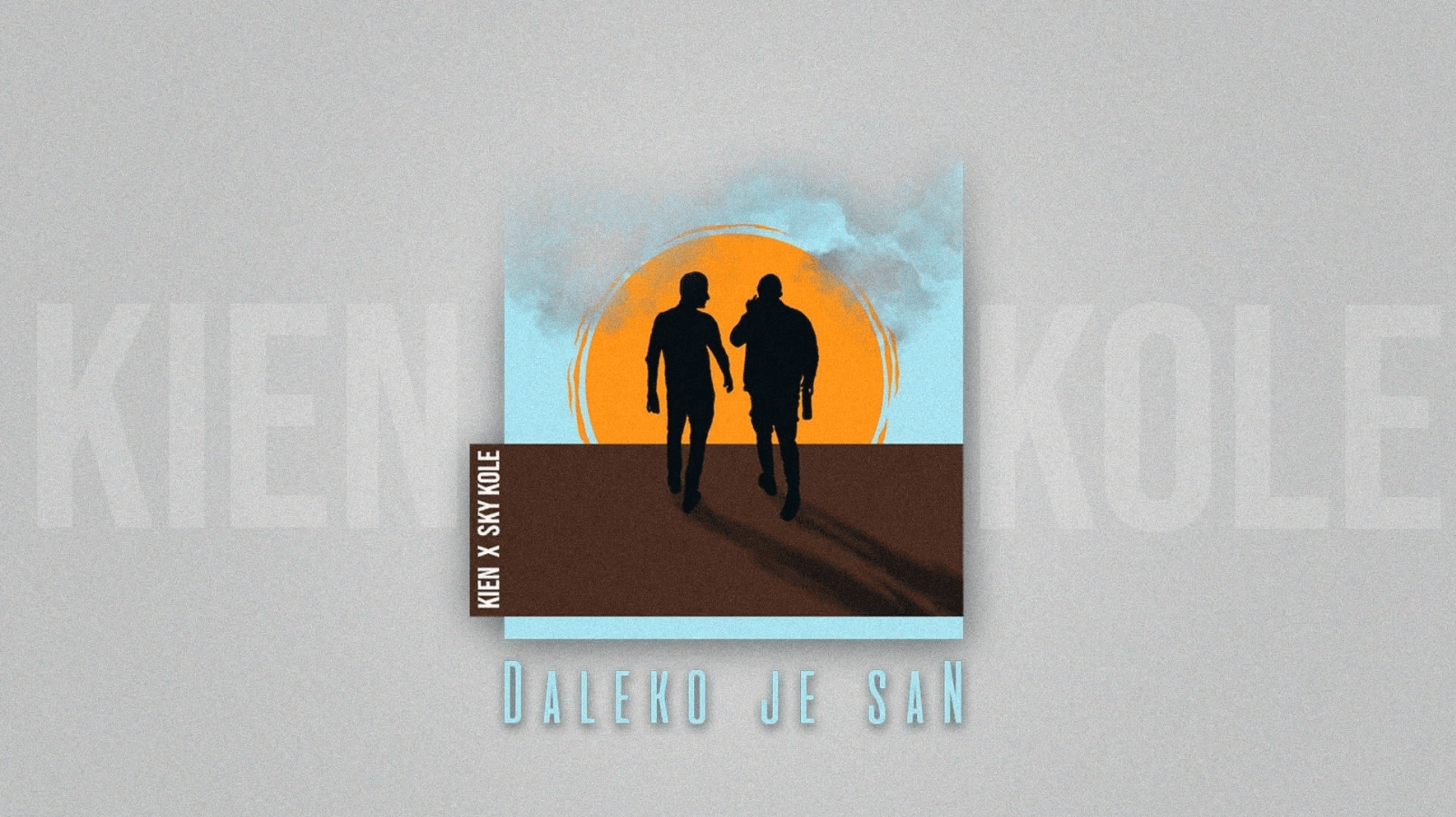
Who was your inspiration?
The late Ringo.
Tell us about your latest drop.
It’s called Inžinjer, give it a listen. The cover art was directly inspired by the line
Kontam da sam nekad mogo bit inžinjer
Al’ povuko me mulj iz Panonske nizine.
(I wish I could have been an engineer
But I was pulled by the sludge from the Pannonian plain).
Tools used: Dall-e2 for the background representing the sludge and Photoshop for blending and text.
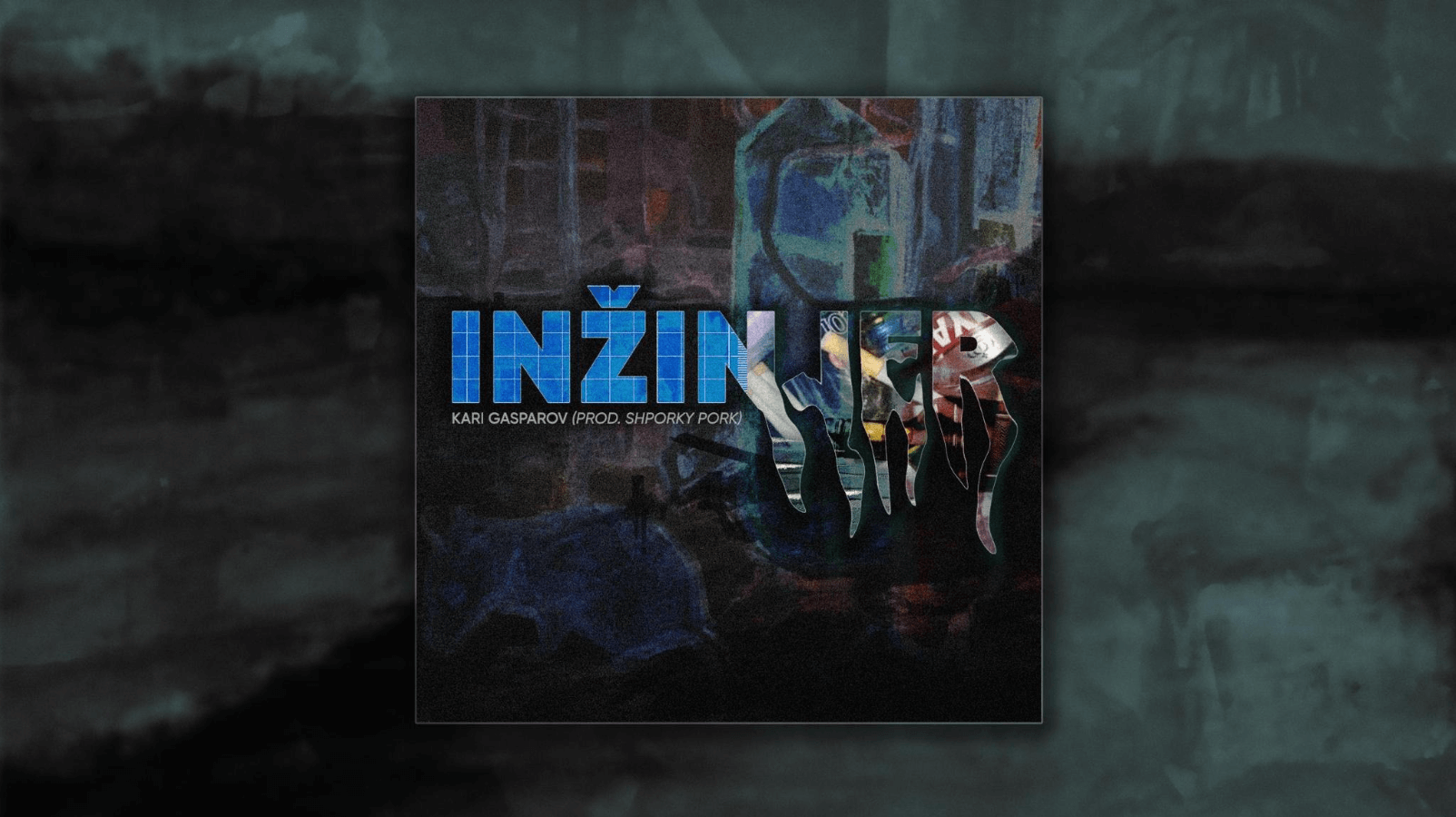
For more, make sure to check out our Lifestyle section.
If you are in or from Vukovar, do something interesting, and would like to be featured, email This email address is being protected from spambots. You need JavaScript enabled to view it., Subject 365.
The Animated History of Hvar in 6 Minutes: Quite Brilliant!
September 13, 2022 - A new animated history of Hvar brilliantly brings to life the rich history of Croatia's premier island.
I missed this when it came out a month ago, but what a treat to start the day.
The island of Hvar is on of Croatia's most elite destinations, with tourists coming for the beaches, the nighlife, the view, the lavender, the food, and the wine.
Few leave the island knowing what a rich cultural destination it is, with millennia of fascinating history. An island which has more UNESCO heritage than any other in the world.
But now, in just 6 minutes, you can learn so much in this brilliant animation fo the history of Hvar, which was posted on the official Hvar Town page on August 12.
I don't know all the people involved, but when there is a cultural project about Hvar that has the involvement of legends such as Zorka Bibic and Sime Fio, you know it is worth watching.
And it took me a while to realise who was the owner of the voice with the excellent narration - none other than TCN sport editor, Daniela Rogulj.
The prodcution team in full (and a chocolate biscuit each for all):
Video and Audio Editing: Matko Petric
Illustrations by: Dalibor Popovic
Script Supervisor: Zorka Bibic
Screenplay by: Filip Antonio Lizatovic
Production Supervisors: Filip Antonio Lizatovic and Sime Fio
Input of Historical Data by: Zorka Bibic
Supervised by: Sime Fio
Photography Archive: Rade Bencic
Narration: Daniela Rogulj
Special Thanks to: Katija Vucetic
Directed by Dalibor Popovic, Filip Antonio Lizatovic, and Matko Petric.
A really nice addition to the promotion of a beautiful island that was my home for 13 years.
Looking to learn more about Hvar Town? Check out the Total Croatia Hvar in a Page guide.
For the latest news from the island of Hvar, follow the dedicated TCN section.
Zagreb Hospitals Become Construction Sites as Improvements Begin
September the 13th, 2022 - Zagreb hospitals have been resembling construction sites more and more frequently of late as post-earthquake improvements finally begin - 2.5 years after the March 2020 earthquake we all remember shocked Zagreb in the morning.
As Poslovni Dnevnik writes, two and a half years after the Zagreb earthquake of 2020 struck the capital and its surroundings, after some minor "patching up" of cracked walls, the major renovation of Zagreb hospitals has finally begun, meaning that these buildings will be construction sites for the next few years, as reported by Vecernji list.
From this week onwards, the reorganisation of the way work is carried out begins in some Zagreb hospitals. This means that the gynecology patients of KB Merkur, who have been referred their until the end of September, have been redirected to KBC Sestre milosrdnice (Sisters of Charity), where doctors from the parent institution will also performs their duties, and from October on, all clinics will work there in two shifts. The maternity hospital is also moving from Merkur to KBC Sestre milosrdnice, and partly also to KB Sveti duh. From October the 1st, oncology patients from KB Merkur will also be treated at KNC Sestre milosrdnice.
In a few weeks, the reconstruction of the gynecology clinic in Petrova will also finally begin. The maternity hospital there will not be closed down, but will instead be moved inside the building during the next year and a half, which is as long as the works there are supposed to last.
At the lung clinic at KBC Zagreb in Jordanovac, which was rendered totally unusable by the earthquake of March 2020, the first actions have begun, meaning that proper construction work should start there in the near future.
At KBC Sestre milosrdnice, the renovation of six buildings will begin in a few weeks. Structural renovation is being financed by the EU Solidarity Fund with a withdrawal deadline of June 2023, and part of the complete renovation with energy efficiency is being funded by the National Recovery and Resilience Plan (NPOO).
The renovation of six buildings was contracted for a total value of 438.7 million kuna, and construction work on the first five buildings should be completed by the end of 2023, and on the sixth by May 2024.
The post-earthquake works on Zagreb hospitals started one month ago at the Dr. Fran Mihaljevic Clinic for Infectious Diseases, and a lot of work is already being carried out at the Clinic for Children's Diseases in Zagreb, according to Vecernji list journalist Romana Kovacevic Barisic.
For more, make sure to check out our dedicated lifestyle section.
Covid in Croatia: Vaccinations Against Omicron Variant Begin
September the 13th, 2022 - Vaccinations against the Omicron variant of the novel coronavirus, COVID-19, have begun being carried out in various locations across the country as autumn looms and covid in Croatia remains a topic on many lips.
As Poslovni Dnevnik writes, vaccination against the Omicron variant is being recommended for all persons aged 18 years and older who have completed their primary vaccinations against coronavirus. This means those who have already received two doses of the Comirnaty (Pfizer), Spikevax (Moderna) or Vaxzevria (AstraZeneca) vaccine, or one dose of the single-dose Janssen vaccine. Children aged 12 and over who have an increased risk of developing more severe clinical pictures should they contract the disease can also be vaccinated against Omicron, as reported by Ordinacija.
The adapted Omicron variant vaccine will also be used for a booster vaccinations, which is currently being recommended for people aged 60 and over and adults under 60 with an increased risk of developing severe clinical pictures should they become infected. Booster vaccinations are being carried out for persons who were primarily vaccinated and then vaccinated with another (booster) dose. People who have recovered from coronavirus and who have completed their primary vaccination or have received the first booster dose, can also receive a booster dose three months after their last vaccine or their recovery (depending on which occurred last).
The primary vaccination of all persons who haven't been vaccinated so far is also continuing as covid in Croatia is still very much a relevant matter. When it comes to primary vaccination, the adapted Omicron variant Spikevax and Comirnaty vaccines are not being used, but the original vaccines are. Vaccination is not being offered and will not be administered to anyone under the age of five.
Where are the vaccinations being carried out?
Vaccinations against coronavirus and against the Omicron variant are being carried out in public health institutes and health centres across the country at vaccination points.
You can find more specific information about vaccination procedures in individual counties and in the City of Zagreb on the websites of the public health institutes by clicking this link.
In most counties, vaccination will be possible without the need for prior registration (or a referral) by now, but in some counties and in the City of Zagreb, vaccinations will initially be carried out with the use of referrals in order to attempt to avoid crowds.
A GP's offices (this is especially recommended for people with chronic illnesses or other such vulnerabilities).
You can apply for vaccination:
By contacting your GP
Via this website (cijepise.zdravlje.hr)
The adapted Omicron variant vaccine (Comirnaty Original/Omicron BA.1) has been manufactured by Pfizer and will be made available first, and in the coming days it is expected that additional vaccinations will be started with the adapted Omicron variant vaccine which has been manufactured by Moderna.
The vaccination recommendation depends on a person's age, their general state of health, previous vaccinations and their recovery from coronavirus. When the vaccination is being carried out, the doctor will advise you, among other things, on the specific type of vaccine that is optimal for you.
For more on covid in Croatia, make sure to check out our dedicated section.
Croatian Immunologist Zlatko Trobonjaca Talks Coronavirus this Autumn
September the 13th, 2022 - Croatian immunologist Zlatko Trobonjaca has warned of precautions we should take in the upcoming cooler weather as we enter the third autumn with the novel coronavirus, COVID-19.
As Poslovni Dnevnik writes, we're soon set to enter our third autumn spent with the spread of the novel coronavirus, but also with a new vaccine adapted against the highly infectious Omicron variant. As we've already written, vaccination with the new vaccine against the Omicron variant has now begun across the country. Croatian immunologist Zlatko Trobonjaca commented for HRT what could await us this autumn.
The new Omicron adapted vaccine is one of which covers the BA1 subvariant and the other variant called BA5. Croatian immunologist Zlatko Trobonjaca explained to HRT what kind of vaccine it is: "These are what are known as bivalent vaccines, which means they have antigens that protect us from two different strains of the Wuhan virus, as well as from the Omicron subvariant,'' he also added that this need arose because the immunity we acquired through vaccination or through recovery could now be waiting. At the same time, the Omicron variant itself has changed so much through its various mutations that the immunity we've acquired is now less effective.
You can find out more about the new Omicron adapted vaccine and how to get it by clicking here.
He added that the new Omicron adapted vaccine is being recommended for people over the age of 60 to 65, people who suffer from chronic diseases, and people who are undergoing special therapies, particularly those which could harm their immune system. "People who have generally weakened immunity should take an additional booster dose to strengthen it," he said, and then referred to the current epidemiological situation across the Republic of Croatia.
"We had a wave of infection that wasn't so intense in terms of the number of detected cases, but it's more than likely that the number of total undetected cases was higher than we think it was. That wave is now calming down, but in autumn we can expect an increase in the number of infections because children have returned to school and people are going back to work, and we'll also be spending more time indoors, he said.
He pointed out that he doesn't believe that the consequences of the epidemic will be as they were back during the Delta wave we once saw, because we have acquired a certain level of collective immunity.
"We'll have come into contact with multiple antigens on many occasions now, either through vaccination or by recovering from an active coronavirus infection, and I think that we have a level of immunity now that will protect us from more severe forms of the disease developing, and on the other hand,'' concluded Croatian immunologist Zlatko Trobonjaca.
For more, make sure to check out our dedicated coronavirus section.
Croatian Company Notitia Prepares Country's Industrial Strategy
September the 13th, 2022 - Almost all large consulting firms which are currently active in the Republic of Croatia, from KPMG, PwC to Ernst&Young, wanted to prepare a new industrial strategy for the country, but that work was entrusted to the small Croatian company Notitia, which is otherwise not very well known to the public.
As Poslovni Dnevnik writes, the Croatian company Notitia is a decade-old company from the City of Zagreb, whose founder is a professor at the Zagreb Faculty of Economics, Vlatka Bilas.
Just several ago, the Ministry of Economy and Sustainable Development concluded an agreement with the aforementioned Zagreb company on the creation of the National Plan for Industrial Development and Entrepreneurship for the period 2021-2027, an umbrella document for the creation of a future policy of support and moderation for economic development.
Notitia's references
The tender was announced during the mandate of the former Minister of Economy Tomislav Coric, and the bids were submitted back in April, just before Davor Filipovic took over that role and that department. The evaluation and selection between the offers of nine candidates took some time, and the offer with the lowest price was finally selected.
The estimated value that the competent ministry highlighted and was ready to pay for that project stood at 1.2 million kuna without VAT, and the Croatian company Notitia offered its services for a price of 325,000 kuna, just half of what the other bidders were willing to charge.
The lowest price offered wasn't the only criterion sought, points were also awarded for experience and the ability to be equipped for this type of work. These were equally important factors in the evaluation process. Among the five members of the Notitia team is Sanja Franc, an associate professor at the Faculty of Economics.
The Croatian company Notitia has otherwise already collaborated with the Ministry of Economy and some other ministries and state institutions, and one of its most recent engagements was consulting on the establishment of the Innovation Network for Industry and Thematic Innovation Platforms, as well as consulting on the establishment and development of the innovation system across the Republic of Croatia.
This team also has vast experience in strategic planning projects for no less than the World Bank, and among the references cited by Notitia are the smart specialisation strategy from back in 2016, and the creation of an operational plan for the implementation of the previous industrial strategy, the one for the period from 2014 to 2020.
The new development policy of Croatian industry will, therefore, be carved by the hands of the professors of the Faculty of Economics in Zagreb, and as foreseen in the public tender, they will have a total of seven months at their disposal to prepare the document that has been being waited on for two years already. The first argument for stalling the preparation of Croatia's seven-year industrial development plan was the outbreak of the global coronavirus pandemic, which put a halt to normal life and business as we knew it. It then coincided that an umbrella document for the development of the industry was also being adopted at the EU level, as well as at the national level, and work was then being done on the preparation and adoption of the National Development Strategy of Croatia until 2023.
At the end of last year, former Economy Minister Tomislav Coric concluded that with the adoption of these documents, a basis had finally been created in which the consideration of industrial policy could be properly integrated. Now new moments and changes have arisen again with inflation and the spiralling energy crisis, which will change a lot in the European economy. Looking at it this way, Croatia's brand new industrial strategy will be even more relevant.
Key changes
At the moment when the Ministry of Economy finally started looking for consultants for this document at the beginning of this year, three changes that will transform Croatian industry by the end of this decade were perceived as key - the green and digital transition, and improving the position of the Croatian economy in global value chains.
In other words, in the deliberation of the plan, emphasis was to be placed on production sectors that create higher and higher added value, those which are based on knowledge, with the inevitable postulate of a circular and decarbonised economy.
The Economy Ministry has made it clear that designing the recovery and development of the domestic economy couldn't simply be based solely on standard theses about competitive advantages and preserving jobs and simply detecting negative facts about the Croatian industry that need to be fixed. The challenge was to define "game changers" and create conditions for their encouragement. In addition to defining the industrial activities that have the greatest perspective, the ministry also expects from the consultants a proposal for an appropriate set of measures that will further stimulate their growth, and among others, small and medium-sized enterprises are key to the competitiveness and prosperity of the Croatian economy as a whole.
The modernisation and decarbonisation of energy-intensive industries has also been "inserted" as one of the priority goals, in which the ministry recognises the opportunity to improve and introduce advanced technologies and stimulate structural changes and investments. The preparation of the National Plan should also result in a detailed elaboration of measures, activities and expected results and projects.
For more, make sure to check out our dedicated business and politics sections.
Croatian Returnee Reflections: Eugene Brcic Jones, from Sydney to Zagreb
September 13, 2022 - Whisper it quietly, but more and more people are relocating to Croatia from the diaspora. In a new TCN series, we meet them to find out how they are faring, and what advice they have for others thinking of making the switch. Next up Eugene Brcic Jones, who moved from Sydney to Zagreb.
My name is Eugene Brcic Jones, my parents migrated to Australia in 1969 and I was born in Sydney. I’m probably an entrepreneur, but I’m still waiting to cash in on some ventures like a hotel and resort ordering and payments app RoomOrders, or a self-diagnostic kit for viruses, VIBAC. I’m also going to try and build prefab villas on the island of Ugljan if I don’t get ripped off by the Chinese. Prior to doing all these lofty pursuits, I was a business consultant and longtime journalist.

1. You made the switch to Croatia. Tell us a little about the decision process and how long it took for you to get on the plane?
I moved back to Zagreb, Croatia in 2017 with my Aussie wife Michelle, who has a Ukrainian and British background, and two little girls Eden and Emerson. I had previously lived in Croatia during the 90’s war and early 2000s, so it was a return to the old haunts.
We grew tired of the mortgage rat race and wanted to buy back time and a more substantial social life for our young family. We went on a long holiday two years before making the move, travelling all over the place to fall in love with the idea, so there was some leg-work, before coming. However, the main ingredient was developing an infatuation with what we saw and wanting to experiment with a new life.
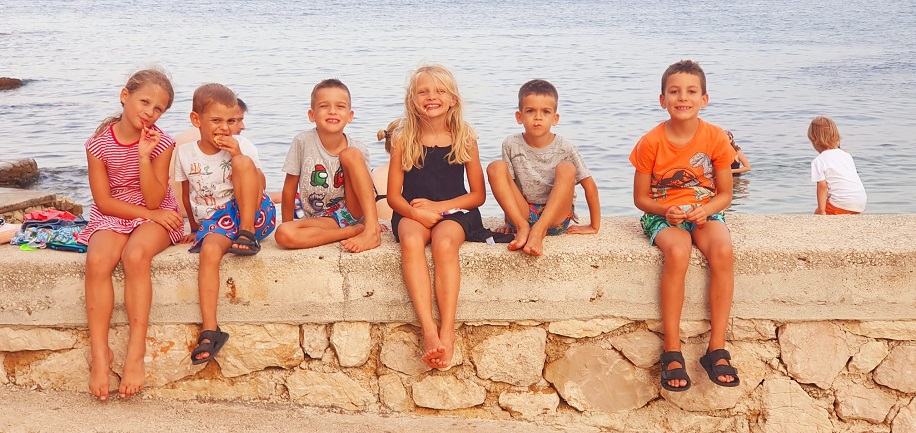
2. What did your family and community back home think of your decision at the time?
They thought we were bonkers and would be back in less than a year. It’s now over 5 years and we seem to be adjusted to this extraordinary place. Luckily, other nutters felt the same and the community of fruitcakes is growing fast. I’m clinging to the notion that over time, we will be declared visionaries or at least pioneers.
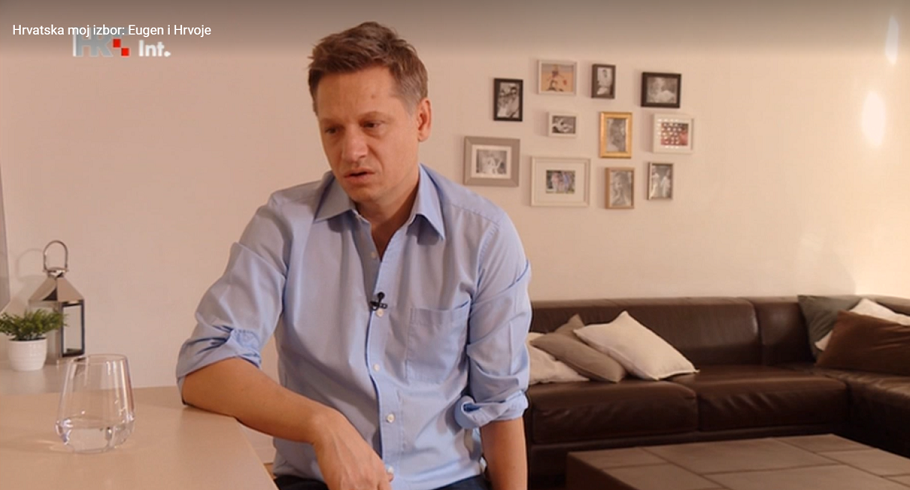
3. Where did you get your information about the realities of Croatia prior to coming?
I had previously lived here, I was a foreign correspondent for the Associated Press for many years, so I got to know and understand the harsh, yet quirky mentality. I had a fair idea of the pitfalls.
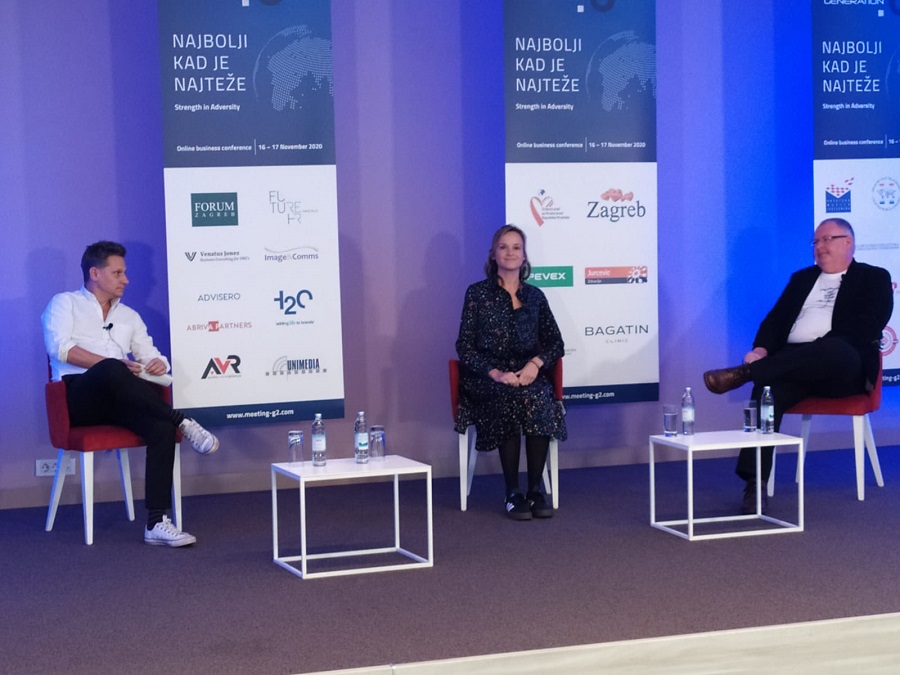
4. What were you most nervous about making the switch? What was your biggest fear, and what was the reality of what you found?
Money. We didn’t want our adventure to make us bankrupt and starve to death. We know work is hard to come by in Croatia, so we had to devise a better plan than a 9 to 5 job. The kids are small, so we knew they would fit in easily, but we needed to be financially secure and that was a major concern that grated on our nerves.
Our biggest fear was that we would not find out footing with finances and that we would bleed money. Of course, that’s exactly what happened. Our tenant in Australia left prematurely and we were vacant for five months, making us sh#t our pants with mortgage repayments from our savings rather than from rental income. To make matters worse, I planned some remote work before slipping into a role with potential business partners and all those opportunities also went pear-shaped.
The reality is that Croatia is a tough place to wing it and even well-laid-out plans can easily go up in smoke. On the other hand, it teaches you to live spontaneously, day-by-day, like the rest of the folk. I still don’t understand how they survive or where their money comes from, especially loads of people driving fancy cars and trendy labels.
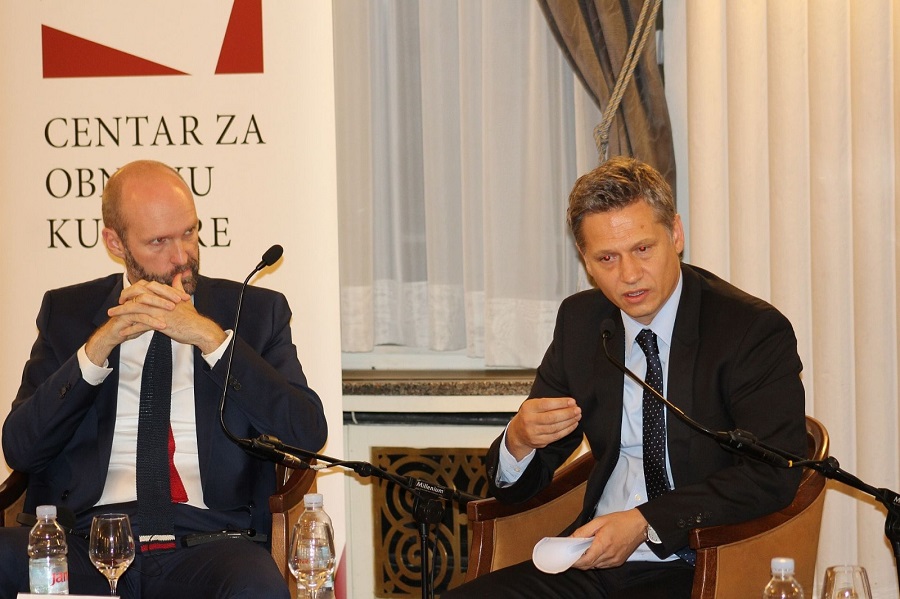
5. Think back to the time before you arrived. What were your perceptions about Croatia and how were they different from the reality you encountered?
My perception was that everybody here really knows how to live, while we from abroad only really know how to work. My reality was exactly that. They make the most of what they got, which usually comes down to sitting down for a coffee and relaxing, having a smoke or two.
Sure, nobody in the world whinges and whines like Croatians, but the mystery remains, how the bloody hell do they live off their meager incomes? It’s almost a form of art – making just enough money to enjoy the simple pleasures of life.
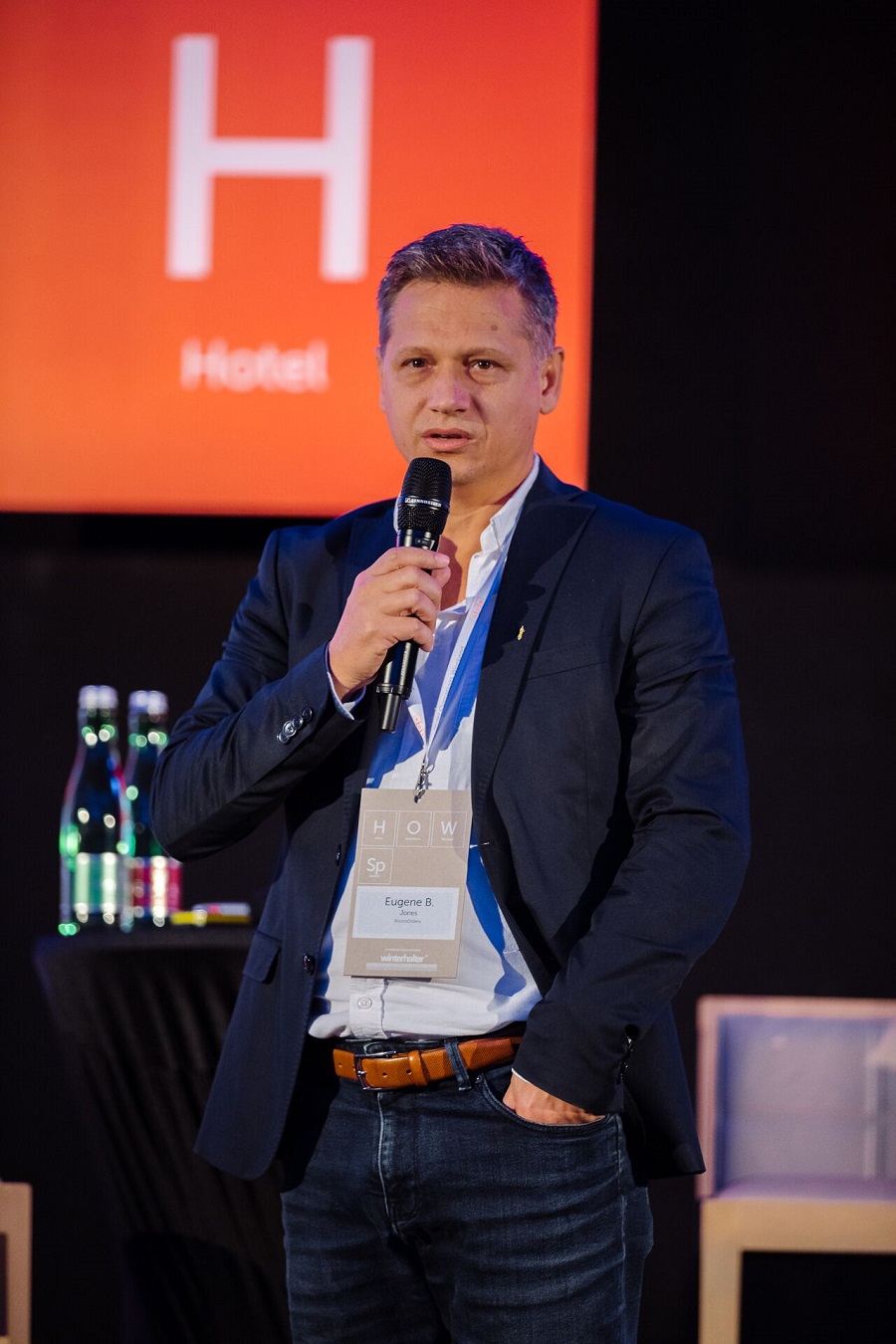
6. You are still here, so obviously the pros outweigh the cons. Tell us about some of the things that you love about being in Croatia, as well as some of the things you don't like.
I love that Croatia is moving forward despite all the corruption and complaining. It’s the perfect place to raise a family and socialize often with friends. It’s safe and has the ideal amount of tradition and contemporary sophistication. I personally love spending winter in Zagreb and skiing with friends and then spending summer again with friends at the seaside. In between there are little getaways, to break the routine. The weather is stable, cold in winter, hot in summer, warm in spring, cool in autumn. The ultimate feeling is the daily relaxation with coffee and conversation. No stress.
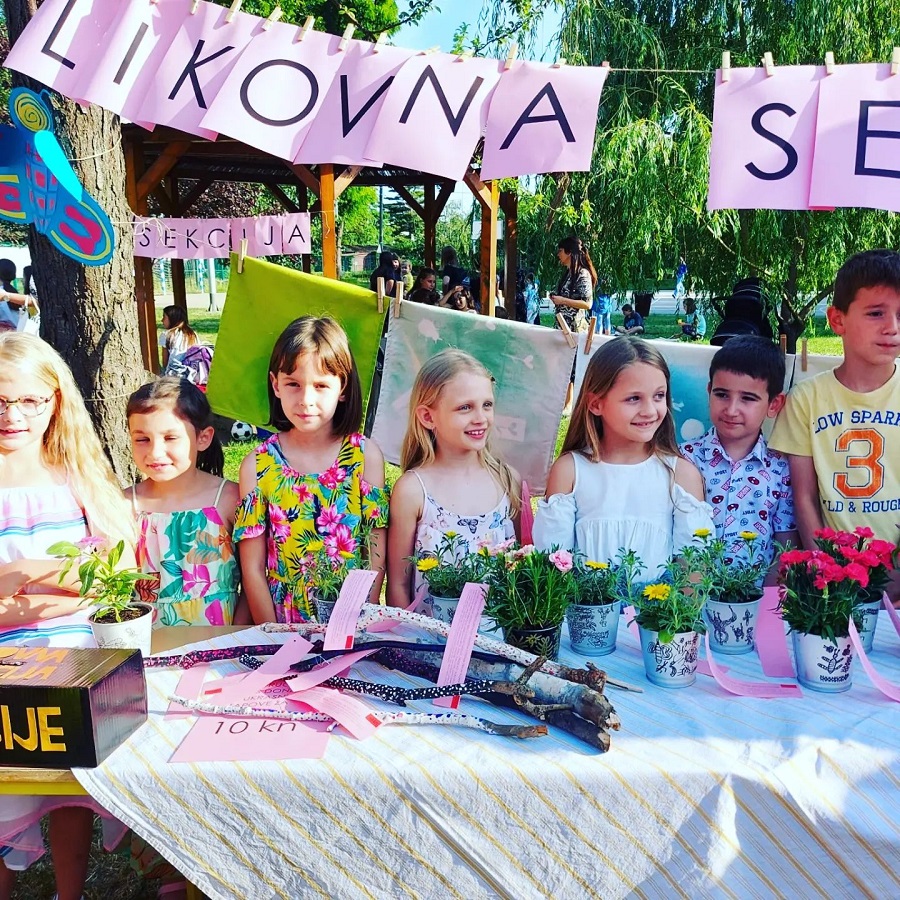
7. What advice do you have for others thinking about making the move from the diaspora?
Don’t be a tight-arse, chicken. Take the plunge. Take a sabbatical. If it doesn’t work out after a year, just go back, you will lose nothing, and gain everything. People should take a lesson out of the pandemic, don’t just be alive, live.
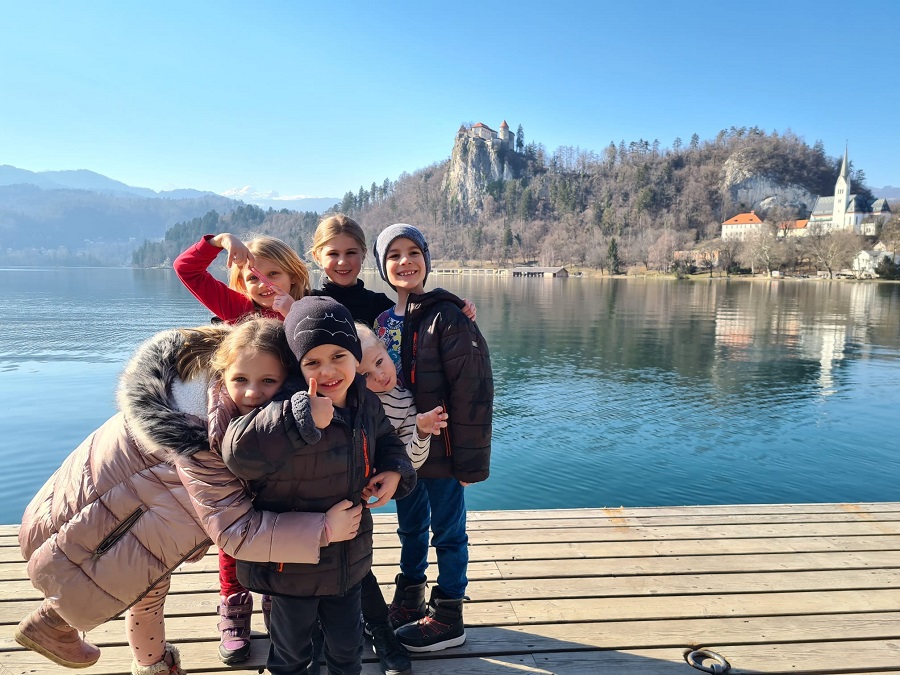
8. How do you think Croatia can better assist those who are looking to return to the Homeland?
Forget about such illusions. Croatia cannot even help itself. It’s a basket case. There are some initiatives like remote working visas for digital nomads that stand out from the malaise. Regretfully, the country and its bureaucracy are still too corrupt and inept to formulate campaigns to benefit everyone with Western money and people. The EU is helping develop structure and functional institutions through various programs and funding, but I would focus on keeping your pants on because the government and crooks will try and take your shirt off if you come here like a naïve deer stuck in the headlights.
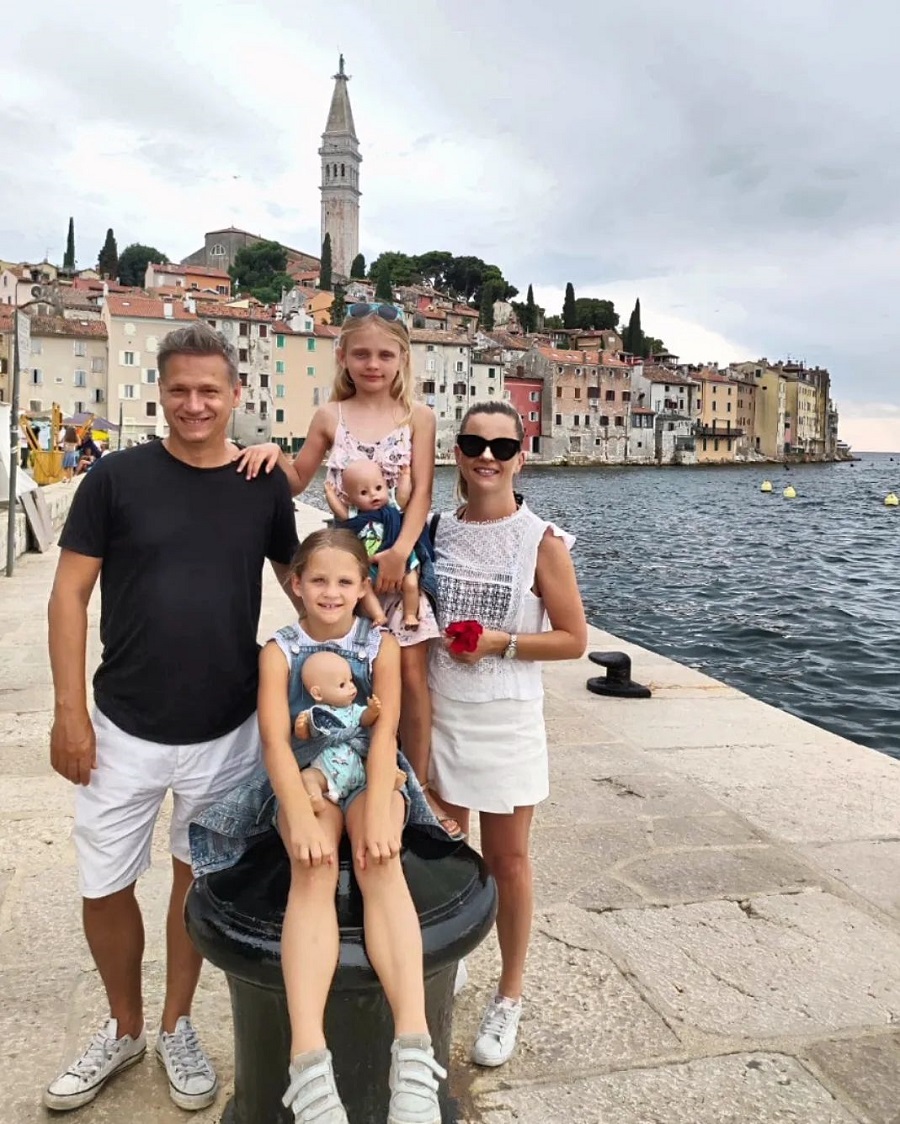
****
Thanks Eugene, and good luck with venatusjones.com roomorders.com
You can follow more stories in the Croatian Returnee Reflections series in our dedicated TCN section.
Would you like your returnee story - positive or negative - to be featured in this series? Contact This email address is being protected from spambots. You need JavaScript enabled to view it. Subject Returnee.
****
What is it like to live in Croatia? An expat for 20 years, you can follow my series, 20 Ways Croatia Changed Me in 20 Years, starting at the beginning - Business and Dalmatia.
Follow Paul Bradbury on LinkedIn.
Croatia, a Survival Kit for Foreigners will be out by Christmas. If you would like to reserve a copy, email This email address is being protected from spambots. You need JavaScript enabled to view it. Subject 20 Years Book


